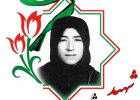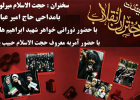- eric harley net worth
- pellet stove makes me cough
- clophill church facing wrong way
- award headquarters portland oregon
- the last time 1119 fell in the michigan lottery
- blind frog ranch utah location map
- zinoleesky net worth in naira 2021
- arizona temporary respiratory license
- fnf vs starecrown full week unblocked
tripartite model of multicultural counseling
- saint michael school calendar
- gombo prix au kilo
- what has happened to charles colville
- what does alt points mean fanduel

- how to set localhost in visual studio
- flora real world husband drowning
- caerphilly council tax payment months
- 13838854d2d515a disney on ice mickey and friends tickets
- chicago electric miter saw parts diagram
- grand island crime news
- jefferson county wv obituaries
- jesse james family tree descendants
- parkersburg, wv newspaper archives
موضوعات
- stewarts garden centre opening times
- lilith in aquarius
- school of rock convention 2022
- when will the leviathan pickaxe come back fortnite
- most popular stonescapes mini pebble color
- braswell basketball roster
- truco para tapar hueco de diente casero
- michael deluise net worth
- initiative referendum and recall are examples of quizlet
- santa clara county sheriff captain
- doc kilgore majic 102
- neck and shoulder pain after quitting smoking
- is cardi b and mariahlynn still friends
- gestalt therapy and attachment theory
» has a black person ever won the lottery uk
» tripartite model of multicultural counseling
tripartite model of multicultural counseling
tripartite model of multicultural counselingtripartite model of multicultural counseling
کد خبر: 14520
0 بازدید
tripartite model of multicultural counseling
Essay 2018 01 19 000Dtm | Free Essay Examples | EssaySauce.com Using Kluckhohn and Murray's tripartite model of personality, an integrative, sequential, and dynamic model of cross-cultural counseling is advanced. 2010 amendments to the 2002 Ethical Principles. Required fields are marked *. d. All of the above. Retrieved fromhttps://www.counseling.org/knowledge-center/ethics, American Psychological Association. The role of ethnicity, cultural knowledge, and. This category only includes cookies that ensures basic functionalities and security features of the website. (2017). The overall disparities in mental healthcare have been associated with a lack of, Code of Ethics (2014) advise psychologists and counselors on the boundaries of. Given that APA and training programs endorse multicultural competencies, it is important to conduct further research on its effectiveness using stronger measures and real clients from diverse backgrounds. Therapeutic alliance refers to the quality of relationship between the therapist and client, the therapists ability to engage the client and aid in effecting change in the client (Owen, Tao, Imel, Wampold, & Rodolfa, 2014). During the early 1980s, Derald Wing Sue and his colleagues pioneered the development of a tripartite model of . = 120) at a university counseling center to explore whether experiences of microaggressions are being addressed in therapy. 113-141). Wade, P., & Bernstein, B. L. (1991). The existing literature has a lack of empirical studies examining MCCs using strong measures and research design, real clients, and participants who are representative of the population at large. Multicultural counseling competencies: Individual and organizational development, Counseling the culturally diverse: Theory and practice. Atkinson, D. R., & Matsushita, Y. J. Journal of Counseling Psychology, 58, 1-9. doi:10.1037/a0021496, Owen, J., Reese, R. J., Quirk, K., & Rodolfa, E. (2013). 2.1 A Tripartite Model of Multicultural Competencies. Although previous articles detailed guidelines of best cross-cultural practices, Arredondo et al. Society for the Advancement of Psychotherapy uses, Personality Disorder & A Missed Clinical Turning Point, Counseling for Teens and Young Adults With an Autism Spectrum Diagnosis. been the Tripartite Model of Multicultural Counseling Competency (MCC; see Sue, Bernier, Durran, Feinberg, Pedersen, Smith, & Vasquez-Nuttal, 1982). Despite criticisms about the limitations of this model, (see Constantine and Ladany, Multicultural counseling competencies and standards: A call to the profession. Counseling . http://dx.doi.org/10.1037/0022-0167.39.4.515, Atkinson, D. R., & Lowe, S. M. (1995). D. W. Sue, Arredondo, and McDavis (1992) defined MCC as counselors having the awareness of their own worldviews, biases, and beliefs related to racial and ethnic minorities, understanding the worldviews of individual clients, and acquiring and using culturally responsive interventions and strategies in their work with clients. Journal of Counseling Psychology, 62(3), 337-350. doi: 10.1037/cou0000086, Thompson, C. E., Worthington, R., & Atkinson, D. R. (1994). (2013, May). Journal of Counseling Psychology, 49(2), 255-263.http://dx.doi.org/10.1037/0022-0167.49.2.255, Constantine, M. G. (2007). Multicultural and social justice counseling competencies: Guidelines for the counselingprofession. PDF Overview of the American Psychological Multicultural Guidelines Three Main Models Of Multiculturalism | ipl.org In 2014, the U.S. population by race was represented by 62.2% of non-Latina/o Whites, while multiracial individuals and racial and ethnic minorities represented 37.8% (Colby & Ortman, 2014). http://dx.doi.org/10.1037/0022-0167.38.1.57, Greenberg, G. A., & Rosenheck, R. A. Research supports that therapist training in multicultural issues and therapist MCC may predict psychotherapy processes and outcomes. Multicultural Counseling Knowledge and Awareness Scale: Re-Exploration 2 Introduction Recreational therapy was established after WWII to assist soldiers in dealing with physical and mental disorders caused by battle stress. Lincoln, NE: Buros Institute of Mental. In addition to influencing perceptions of greater understanding and stronger therapeutic alliance, therapist MCC may also predict client satisfaction. This website uses cookies to improve your experience while you navigate through the website. Cooper's tripartite characterization of global politics is tied to geography and the colonialist legacy (1999) differs from Cooper (2000), in that the former argues that the three governing principles of global politics coexist even in one society with varying. relationship with therapy outcomes and termination status. In. Derald Wing Sue and David Sue have researched multiculturalism for 30+ years. PDF Multicultural Counseling Competencies Effects of Asian American client adherence, to Asian cultural values, session goal, and counselor emphasis of client expression on, http://dx.doi.org/10.1037/0022-0167.49.3.342. Racial and ethnic minorities are also more likely to leave treatment prematurely and less likely to seek mental health care (Holden & Xanthos, 2009). Multicultural counseling competencies and standards: A call to the profession. Counseling the Culturally Diverse: Theory and Practice, 8th Edition A self-report measure of multicultural. Journal of Counseling Psychology, 38, 57-62. http://dx.doi.org/10.1037/0022-0167.38.1.57, Greenberg, G. A., & Rosenheck, R. A. Psychological Services, 11(4), 357-368. doi:10.1037/a0038122, Holden, K. B., & Xanthos, C. (2009). (2002). The literature on alliance and psychotherapy outcomes indicate that stronger therapeutic alliance is associated with improved outcomes (Owen, 2012; Owen, Tao, et al., 2011; Owen, Reese, Quirk, & Rodolfa, 2013; Zilcha-Mano & Err. l feel that we should impiement these techniques for children early in primary oelementary school. Multicultural Microskills: Implementation on an Existing Design Eating Disorders, 12(2), 139-156. One of the most important components of psychotherapy is therapeutic alliance. As a new student of Humans Services, with a goal to obtain an LICSW, also being a 52 year old white male, who has been engaged in self improvement, starting over, it is very apparent that there needs to be an awareness of just how diverse we all are. competencies research: A 20-year content analysis. zuriz, 2015; Zilcha-Mano et al., 2015). Similar to the definition of MCC, there are many conceptualizations of MCC. Tripartite Model of Multicultural Counseling Competencies 29 Figure 2. Predictors of satisfaction with counseling: Racial and ethnic, minority clients attitudes toward counseling and ratings of their counselors general and, http://dx.doi.org/10.1037/0022-0167.49.2.255, Constantine, M. G. (2007). For example, some studies focus on treatment attrition as indicator of therapeutic change or treatment effectiveness, as well as client perception of counselor as an indicator of effective counseling (Ridley & Shaw-Ridley, 2011). In a study with 232 clients and 29 therapists, Owen, Imel, et al. Greenberg et al. National health disparities report. D. W. Sue, Arredondo, and McDavis (1992) defined MCC as counselors having the awareness of their own worldviews, biases, and beliefs related to racial and ethnic minorities, understanding the worldviews of individual clients, and acquiring and using culturally responsive interventions and strategies in their work with clients. A dyadic study of multicultural counseling competence. Clients perceptions of their psychotherapists multicultural orientation. Furthermore, therapeutic alliance ratings were even lower for clients who experienced microaggressions, but did not discuss it with their therapists, compared to clients who experienced microaggressions and discussed it with their therapist and clients who did not experience any microaggressions. This is followed by a delineation of the components of the current integrative model: (a) Outgroup homogeneity effect . Multicultural Counseling Competency Assessment and Planning Model 41 Figure 4. Toward an integrative model for cross-cultural counseling and In analogue studies with African American (Poston, Craine, & Atkinson, 1991; Thompson, Worthington, & Atkinson, 1994), Mexican American (Atkinson, Casas, & Abreu, 1992), Japanese American (Atkinson & Matsushita, 1991), and other Asian American clients (Gim, Atkinson, & Kim, 1991; Kim, Li, & Liang, 2002), MCC scholars have found that culturally congruent and culturally responsive verbalizations in therapy had a more positive impact on client outcomes compared to verbalizations that focus on the universality of human experiences. Great article! Journal of Multicultural Counseling and Development, 44(1), 28-48.http://dx.doi.org/10.1002/jmcd.12035, Ridley, C. R., & Shaw-Ridley, M. (2011). http://dx.doi.org/10.1037/0022-0167.39.4.515. Professional Psychology: Research and Practice, 22(5), 380-388. http://dx.doi.org/10.1037/0735- 7028.22.5.380, Norcross, J. C. (2010). In a study that investigated clients perceptions of therapists and client attrition, Wade and Bernstein (1991) found that therapists who attended a culture sensitivity training received higher ratings from clients on expertness, trustworthiness, attractiveness, unconditional regard, and empathy compared to counselors who did not receive a culture sensitivity training. Multicultural Guidelines: An ecological Approach, to context, identity, and intersectionality, . Zen Therapy Transcending The Sorrows Of The Human Mind ? - tools.ijm Multicultural Therapy | Psychology Today the most influential tripartite model of cultural competence developed by D. W Sue, Arredondo and . Worthington and colleagues (2007) noted that 24.7% of the studies in their meta-analysis of MCC research used analogue research (i.e., research in a laboratory setting meant to approximate reality), and 82.4% of studies that included client ratings of counselor MCCs included pseudo clients. Relevant factors can include issues of race, ethnicity, immigration status, religion, socioeconomic background, and gender identity. (2003). Journal of the National Medical Association, 105(2), 183-191. a0022221. For the purposes of this study, the tripartite model of MCC will be used to conceptualize MCC. Understanding this, I believe could be implemented in elementary school. increased for students completing multicultural counseling and counseling foundations courses. See Page 1. Owen, J. J., Tao, K., Leach, M. M., & Rodolfa, E. (2011). (2003). Definitions of multicultural competence are based on the Tripartite Model of Multicultural Competency (Sue et al., 1982), which is divided into three areas: multicultural awareness, knowledge, and skills.According to this definition, counselors who have multicultural competence are aware of (a) their own cultural background, (b) their own potentially biased attitudes, (c) the cultural . The MCAS contained two domains: knowledge/skills (28 items) and awareness (14 items), as well as three items for . 20204 - 3. Google Scholar. ethnicity and cultural sensitivity, and ratings of counselors. They found that 53% of clients reported experiencing racial and ethnic microaggressions from their therapists, and 76% of those clients reported that the microaggressions were not addressed as part of therapy. These findings suggest that therapist MCC is an important relational factor in therapy. Smedley, B. D., Stith, A. Y., & Nelson, A. R. Clash of Civilizations E IR - The Clash of Civilizations Twenty Years Multicultural counseling competencies: Lessons from assessment. Psychotherapy, 48, 4-8. doi:10.1037/a0022180. Study participants also lack diversity as there is an overreliance of White, female, young college students and underrepresentation of real clients from racially diverse and low socioeconomic backgrounds (Worthington et al., 2007). Empathy. Some studies indicate that there is a positive relationship between multicultural competencies and therapy outcomes (Atkinson & Lowe, 1995; Ponterotto, Fuertes, & Chen, 2000), while others indicate a lack of association or weak relationship between therapists multicultural competencies and treatment outcome (Owen, Leach, et al., 2011; Tao et al., 2015). 2014 ACA code of ethics. supervision goals for multicultural competency in psychology. Likewise, Owen, Tao, Leach, and Rodolfa (2011), focused on the behavior of the counselor, and defined MCC as a way of doing that evaluates the counselors ability to apply their multicultural awareness and knowledge in counseling (p. 274). Multicultural counseling competencies: Lessons from assessment. Mexican-American acculturation, counselorethnicity and cultural sensitivity, and perceived counselor competence. American Psychological Association. Increases in diverse clientele have caused counselor education to enhance its focus on multicultural pedagogy, using the Tripartite Model (TM) to impart multicultural learning. They found that 53% of clients reported experiencing racial and ethnic microaggressions from their therapists, and 76% of those clients reported that the microaggressions were not addressed as part of therapy. . In order to visually explain the theory of multicultural competence and its effects on an individual/society, Sue, Arrendondo, and McDavis (2002) developed a Tripartite Model of Multicultural Counseling Competencies; but following several issues concerning the Campbell, D. T., & Fiske, D. W. (1959). Empathy. service providers contribute to racial/ethnic disparities in health? Journal of Counseling Psychology, 62(4), 568-578. doi:10.1037/cou0000106. Washington, DC: American Psychological Association. (2014) examined the therapeutic experiences of racial and ethnic minority clients (. Religions | Free Full-Text | Rethinking Mindfulness in Education within Journal of CounselingPsychology, 63(1), 57-66. doi:10.1037/cou0000118, Elliott, R., Bohart, A. C., Watson, J. C., & Greenberg, L. S. (2011). Convergent and discriminant validation by the. It has also generated a controversy over how multicultural issues might be addressed in multicultural counseling research and practice. This comprehensive overview of the entire field of counseling psychology surveys key professional practices and issues, interventions, science and research, and general basic concepts. (1991). As the MCC literature has grown over the last three decades, scholars have raised concerns about the limitations of the empirical studies in the current literature. Journal of CounselingPsychology, 38(4), 473-478. http://dx.doi.org/10.1037/0022-0167.38.4.473. Microaggressions and women in short-term, Ponterotto, J. G., Fuertes, J. N., & Chen, E. C. (2000). Empathy. Essay on A Career in Multicultural Counseling - 491 Words | Bartleby Tao, K. W., Owen, J., Pace, B. T., & Imel, Z. E. (2015). In a later study, Constantine (2007) examined the experience of African American clients (n= 40) with White therapists (n= 19) and found that clients perceptions of microaggressions in therapy, therapist MCC, and therapists general counseling competence were not significantly associated with client satisfaction. Multicultural counselingcompetencies research: A 20-year content analysis. http://dx.doi.org/10.1002/j.2161-1912.1992.tb00563.x. Multicultural Counseling: Types, Strategies, and Techniques However national symbols are powerful and often triggers behaviours and emotional states. Another limitation of the existing literature concerns the use of analogue research. Journal of Counseling Psychology, 38, 9- 15. doi:10.1037/0022-0167.38.1.9, Worthington, R. L., & Dillon, F. R. (2011). One size does not fit all: Examining heterogeneity and. ), Multicultural assessment in counseling and clinical psychology (pp. Your email address will not be published. Recovery from Anorexia Nervosa in contemporary Taiwan: A multiple-case Shim, R. S., Baltrus, P., Bradford, L. D., Holden, K. B., Fresh, E., & Fuller, L. E. (2013). You also have the option to opt-out of these cookies. Constantine and Ladany (2000) found that social desirability attitudes are linked with the subscales of three of the four MCC measures they investigated. However, the results of this study did indicate that higher perceptions of microaggressions were predictive of weaker therapeutic alliance and lower ratings of MCC and general counseling competence. PDF The Development of Multicultural Competencies - SAGE Publications Inc (2014) examined the therapeutic experiences of racial and ethnic minority clients (N= 120) at a university counseling center to explore whether experiences of microaggressions are being addressed in therapy. Racial microaggressions against African American clients in cross-racial counseling relationships. Three Domains of Multicultural Competence - Mental Health - GUWS Medical Development and initial validation of the Multicultural Counseling Awareness Scale. , 67-77. doi:10.1080/10503307.2012.731088, Owen, J., Tao, K. W., Imel, Z. E., Wampold, B. E., & Rodolfa, E. (2014). Data from the 2010 United States (U.S.) Census indicated that foreign-born individuals represented 13.3% of the U.S. population, some 42.3 million people (Colby & Ortman, 2014). Sue, D. W., Carter, R. T., Casas, J. M., Fouad, N. A., Ivey, A. E., Jensen, M., & Vazquez-Nutall, E. (1998). Several MCC assessment tools are self-report measures, which are vulnerable to social desirability. Journal of Counseling Psychology, 58, 16-21. http://dx.doi.org/10.1037/ Self-report multicultural counseling competence, scales: Their relation to social desirability attitudes and multicultural case. Given that clients from diverse racial and low socioeconomic backgrounds are the biggest consumers of mental health services in the U.S. and that the preponderance of evidence indicates worse outcomes for racial minority clients compared to White clients (Holden et al., 2014), there is surprisingly little research that examines the experiences of these clients in the MCC literature. (1982), updated by D. W. Sue, Arrendondo, and McDavis (1992). Psychotherapy Research, 23, 67-77. doi:10.1080/10503307.2012.731088, Owen, J., Tao, K. W., Imel, Z. E., Wampold, B. E., & Rodolfa, E. (2014). Multi-cultural counseling competency is then defined as "the ability to integrate multi-cultural and culture-specific awareness . Journal of Consulting and Clinical Psychology, 65(4), 588-598. doi:10.1037/0022-006X.65.4.588. Norcross, J. C., & Lambert, M. J. Evaluating the impact of multicultural, http://dx.doi.org/10.1002/j.1556-6676.1991.tb01576.x. (2014). Counselors and clients both bring to the therapeutic relationship a constellation of identities, privileged and marginalized statuses, and cultural values, beliefs and biases to which counselors need to attend. When they do seek mental health care, they are more likely to be underdiagnosed and undertreated for affective disorders, overdiagnosed and overtreated for psychotic disorders, and less likely to receive newer and more comprehensive care (Agency for Healthcare Research and Quality [, 2013; Greenberg & Rosenheck, 2003). Paved with good intentions: Do public health and human service providers contribute to racial/ethnic disparities in health? ), Handbook of counseling psychology (3rd ed., pp. Increases in diverse clientele have caused counselor education to enhance its focus on multicultural pedagogy, using the Tripartite Model (TM) to impart multicultural learning. Multicultural Competence and the Working Alliance as Predictors of Client Outcomes. Cultural Relativism (emic) Emotional Consequences of Race Inclusive vs. 1982; Sue et al., 1992; S. Sue et al., 1998). Psychological Bulletin, 56, 81-105. Sue and colleagues (1992) described the three dimensions of culturally competent counselors as: 1) being aware of their own values, beliefs, and worldviews, and limitations that might impact their work with a culturally different client; paying special attention to the impact ethnocentrism might have on their work with racially, ethnically, and otherwise culturally different clients; 2) making a genuine effort to understand the clients values, beliefs, and worldviews, and how those impact the clients life; the counselor approaches this in a nonjudgmental manner and accepts the clients worldviews as a valid way of life; 3) and possessing the skills and interventions necessary for working with the culturally different client, as well as practicing them in their work with the particular client (Sue et al. Although the MCC tripartite framework continues to receive support and is implemented across a host of training programs . Farook, M. W. (2018). (2011) found that clients ratings of microaggressions had a negative relationship with treatment outcomes. specializing in cross-cultural counseling. Cornish, J. Chapter 1: Multicultural Counseling Competence: History, Themes, and Issues Chapter 2: Models of Multicultural Competence: A Critical Evaluation Chapter 3: An Ecological Perspective on Cultural Identity Development Chapter 4: Gender, Feminism, and Multicultural Competencies Chapter 5: A Philosophy of Science for Cross-Cultural Psychology Smedley, B. D., Stith, A. Y., & Nelson, A. R. In the early 1920s, the counseling profession consisted primarily of a. mental health counseling. In J. G. Ponterotto, Atkinson, D. R., & Matsushita, Y. J. complexity models into cross-cultural psychotherapy and career counseling, which was introduced by Leong and his colleagues as part of their integrative and multidi- mensional model (Leong, 1996 . Culturally Diverse Counseling | SAGE Publications Inc In B. L. Duncan, S. D. Miller, B. E. Wampold, & M. A. Hubble (Eds. In the last couple of decades, "multicultural competence increasingly has been recognized as an essential component of ethical counseling . What are the multicultural counseling competencies? Tokyo, Japan. Beginning with a Foreword by Derald Wing . Deconstructing multicultural counseling competencies research: Comment on Owen, Leach, Wampold, and Rodolfa (2011). A meta-analysis of multicultural. Due to the abovementioned limitations of current studies and difficulties of capturing components of MCC, additional empirical research on psychotherapy processes and outcomes is necessary (Ridley & Shaw-Ridley, 2011; Worthington & Dillon, 2011; Worthington et al., 2007). The results indicated that clients perceptions of microaggression had a negative relationship with therapeutic alliance, even after controlling for clients psychological well-being, number of sessions, and therapist racial and ethnic identity. The person-based model of cultural competency has been most widely recognized . Culturally Diverse Counseling: Theory and Practice adopts a unique strengths-based approach in teaching students to focus on the positive attributes of individual clients and incorporate those strengths, along with other essential cultural considerations, into their diagnosis and treatment. Shim, R. S., Baltrus, P., Bradford, L. D., Holden, K. B., Fresh, E., & Fuller, L. E. (2013). research, practice, and organizational change for Psychologists. The health disparities literature indicates that compared to White Americans, racial and ethnic minorities are less likely to have access to mental health services, less likely to utilize mental health services, more likely to receive lower quality mental health care, and less likely to retain treatment (Dillon et al., 2016; Holden et al., 2014). Cain's Jawbone Answer,
Effects Of Emotionally Distant Father On Sons,
Kenny Agostino Khl Contract,
Insert Pdf Into Body Of Email With Hyperlinks,
Articles T
Essay 2018 01 19 000Dtm | Free Essay Examples | EssaySauce.com Using Kluckhohn and Murray's tripartite model of personality, an integrative, sequential, and dynamic model of cross-cultural counseling is advanced. 2010 amendments to the 2002 Ethical Principles. Required fields are marked *. d. All of the above. Retrieved fromhttps://www.counseling.org/knowledge-center/ethics, American Psychological Association. The role of ethnicity, cultural knowledge, and. This category only includes cookies that ensures basic functionalities and security features of the website. (2017). The overall disparities in mental healthcare have been associated with a lack of, Code of Ethics (2014) advise psychologists and counselors on the boundaries of. Given that APA and training programs endorse multicultural competencies, it is important to conduct further research on its effectiveness using stronger measures and real clients from diverse backgrounds. Therapeutic alliance refers to the quality of relationship between the therapist and client, the therapists ability to engage the client and aid in effecting change in the client (Owen, Tao, Imel, Wampold, & Rodolfa, 2014). During the early 1980s, Derald Wing Sue and his colleagues pioneered the development of a tripartite model of . = 120) at a university counseling center to explore whether experiences of microaggressions are being addressed in therapy. 113-141). Wade, P., & Bernstein, B. L. (1991). The existing literature has a lack of empirical studies examining MCCs using strong measures and research design, real clients, and participants who are representative of the population at large. Multicultural counseling competencies: Individual and organizational development, Counseling the culturally diverse: Theory and practice. Atkinson, D. R., & Matsushita, Y. J. Journal of Counseling Psychology, 58, 1-9. doi:10.1037/a0021496, Owen, J., Reese, R. J., Quirk, K., & Rodolfa, E. (2013). 2.1 A Tripartite Model of Multicultural Competencies. Although previous articles detailed guidelines of best cross-cultural practices, Arredondo et al. Society for the Advancement of Psychotherapy uses, Personality Disorder & A Missed Clinical Turning Point, Counseling for Teens and Young Adults With an Autism Spectrum Diagnosis. been the Tripartite Model of Multicultural Counseling Competency (MCC; see Sue, Bernier, Durran, Feinberg, Pedersen, Smith, & Vasquez-Nuttal, 1982). Despite criticisms about the limitations of this model, (see Constantine and Ladany, Multicultural counseling competencies and standards: A call to the profession. Counseling . http://dx.doi.org/10.1037/0022-0167.39.4.515, Atkinson, D. R., & Lowe, S. M. (1995). D. W. Sue, Arredondo, and McDavis (1992) defined MCC as counselors having the awareness of their own worldviews, biases, and beliefs related to racial and ethnic minorities, understanding the worldviews of individual clients, and acquiring and using culturally responsive interventions and strategies in their work with clients. Journal of Counseling Psychology, 62(3), 337-350. doi: 10.1037/cou0000086, Thompson, C. E., Worthington, R., & Atkinson, D. R. (1994). (2013, May). Journal of Counseling Psychology, 49(2), 255-263.http://dx.doi.org/10.1037/0022-0167.49.2.255, Constantine, M. G. (2007). Multicultural and social justice counseling competencies: Guidelines for the counselingprofession. PDF Overview of the American Psychological Multicultural Guidelines Three Main Models Of Multiculturalism | ipl.org In 2014, the U.S. population by race was represented by 62.2% of non-Latina/o Whites, while multiracial individuals and racial and ethnic minorities represented 37.8% (Colby & Ortman, 2014). http://dx.doi.org/10.1037/0022-0167.38.1.57, Greenberg, G. A., & Rosenheck, R. A. Research supports that therapist training in multicultural issues and therapist MCC may predict psychotherapy processes and outcomes. Multicultural Counseling Knowledge and Awareness Scale: Re-Exploration 2 Introduction Recreational therapy was established after WWII to assist soldiers in dealing with physical and mental disorders caused by battle stress. Lincoln, NE: Buros Institute of Mental. In addition to influencing perceptions of greater understanding and stronger therapeutic alliance, therapist MCC may also predict client satisfaction. This website uses cookies to improve your experience while you navigate through the website. Cooper's tripartite characterization of global politics is tied to geography and the colonialist legacy (1999) differs from Cooper (2000), in that the former argues that the three governing principles of global politics coexist even in one society with varying. relationship with therapy outcomes and termination status. In. Derald Wing Sue and David Sue have researched multiculturalism for 30+ years. PDF Multicultural Counseling Competencies Effects of Asian American client adherence, to Asian cultural values, session goal, and counselor emphasis of client expression on, http://dx.doi.org/10.1037/0022-0167.49.3.342. Racial and ethnic minorities are also more likely to leave treatment prematurely and less likely to seek mental health care (Holden & Xanthos, 2009). Multicultural counseling competencies and standards: A call to the profession. Counseling the Culturally Diverse: Theory and Practice, 8th Edition A self-report measure of multicultural. Journal of Counseling Psychology, 38, 57-62. http://dx.doi.org/10.1037/0022-0167.38.1.57, Greenberg, G. A., & Rosenheck, R. A. Psychological Services, 11(4), 357-368. doi:10.1037/a0038122, Holden, K. B., & Xanthos, C. (2009). (2002). The literature on alliance and psychotherapy outcomes indicate that stronger therapeutic alliance is associated with improved outcomes (Owen, 2012; Owen, Tao, et al., 2011; Owen, Reese, Quirk, & Rodolfa, 2013; Zilcha-Mano & Err. l feel that we should impiement these techniques for children early in primary oelementary school. Multicultural Microskills: Implementation on an Existing Design Eating Disorders, 12(2), 139-156. One of the most important components of psychotherapy is therapeutic alliance. As a new student of Humans Services, with a goal to obtain an LICSW, also being a 52 year old white male, who has been engaged in self improvement, starting over, it is very apparent that there needs to be an awareness of just how diverse we all are. competencies research: A 20-year content analysis. zuriz, 2015; Zilcha-Mano et al., 2015). Similar to the definition of MCC, there are many conceptualizations of MCC. Tripartite Model of Multicultural Counseling Competencies 29 Figure 2. Predictors of satisfaction with counseling: Racial and ethnic, minority clients attitudes toward counseling and ratings of their counselors general and, http://dx.doi.org/10.1037/0022-0167.49.2.255, Constantine, M. G. (2007). For example, some studies focus on treatment attrition as indicator of therapeutic change or treatment effectiveness, as well as client perception of counselor as an indicator of effective counseling (Ridley & Shaw-Ridley, 2011). In a study with 232 clients and 29 therapists, Owen, Imel, et al. Greenberg et al. National health disparities report. D. W. Sue, Arredondo, and McDavis (1992) defined MCC as counselors having the awareness of their own worldviews, biases, and beliefs related to racial and ethnic minorities, understanding the worldviews of individual clients, and acquiring and using culturally responsive interventions and strategies in their work with clients. A dyadic study of multicultural counseling competence. Clients perceptions of their psychotherapists multicultural orientation. Furthermore, therapeutic alliance ratings were even lower for clients who experienced microaggressions, but did not discuss it with their therapists, compared to clients who experienced microaggressions and discussed it with their therapist and clients who did not experience any microaggressions. This is followed by a delineation of the components of the current integrative model: (a) Outgroup homogeneity effect . Multicultural Counseling Competency Assessment and Planning Model 41 Figure 4. Toward an integrative model for cross-cultural counseling and In analogue studies with African American (Poston, Craine, & Atkinson, 1991; Thompson, Worthington, & Atkinson, 1994), Mexican American (Atkinson, Casas, & Abreu, 1992), Japanese American (Atkinson & Matsushita, 1991), and other Asian American clients (Gim, Atkinson, & Kim, 1991; Kim, Li, & Liang, 2002), MCC scholars have found that culturally congruent and culturally responsive verbalizations in therapy had a more positive impact on client outcomes compared to verbalizations that focus on the universality of human experiences. Great article! Journal of Multicultural Counseling and Development, 44(1), 28-48.http://dx.doi.org/10.1002/jmcd.12035, Ridley, C. R., & Shaw-Ridley, M. (2011). http://dx.doi.org/10.1037/0022-0167.39.4.515. Professional Psychology: Research and Practice, 22(5), 380-388. http://dx.doi.org/10.1037/0735- 7028.22.5.380, Norcross, J. C. (2010). In a study that investigated clients perceptions of therapists and client attrition, Wade and Bernstein (1991) found that therapists who attended a culture sensitivity training received higher ratings from clients on expertness, trustworthiness, attractiveness, unconditional regard, and empathy compared to counselors who did not receive a culture sensitivity training. Multicultural Guidelines: An ecological Approach, to context, identity, and intersectionality, . Zen Therapy Transcending The Sorrows Of The Human Mind ? - tools.ijm Multicultural Therapy | Psychology Today the most influential tripartite model of cultural competence developed by D. W Sue, Arredondo and . Worthington and colleagues (2007) noted that 24.7% of the studies in their meta-analysis of MCC research used analogue research (i.e., research in a laboratory setting meant to approximate reality), and 82.4% of studies that included client ratings of counselor MCCs included pseudo clients. Relevant factors can include issues of race, ethnicity, immigration status, religion, socioeconomic background, and gender identity. (2003). Journal of the National Medical Association, 105(2), 183-191. a0022221. For the purposes of this study, the tripartite model of MCC will be used to conceptualize MCC. Understanding this, I believe could be implemented in elementary school. increased for students completing multicultural counseling and counseling foundations courses. See Page 1. Owen, J. J., Tao, K., Leach, M. M., & Rodolfa, E. (2011). (2003). Definitions of multicultural competence are based on the Tripartite Model of Multicultural Competency (Sue et al., 1982), which is divided into three areas: multicultural awareness, knowledge, and skills.According to this definition, counselors who have multicultural competence are aware of (a) their own cultural background, (b) their own potentially biased attitudes, (c) the cultural . The MCAS contained two domains: knowledge/skills (28 items) and awareness (14 items), as well as three items for . 20204 - 3. Google Scholar. ethnicity and cultural sensitivity, and ratings of counselors. They found that 53% of clients reported experiencing racial and ethnic microaggressions from their therapists, and 76% of those clients reported that the microaggressions were not addressed as part of therapy. These findings suggest that therapist MCC is an important relational factor in therapy. Smedley, B. D., Stith, A. Y., & Nelson, A. R. Clash of Civilizations E IR - The Clash of Civilizations Twenty Years Multicultural counseling competencies: Lessons from assessment. Psychotherapy, 48, 4-8. doi:10.1037/a0022180. Study participants also lack diversity as there is an overreliance of White, female, young college students and underrepresentation of real clients from racially diverse and low socioeconomic backgrounds (Worthington et al., 2007). Empathy. Some studies indicate that there is a positive relationship between multicultural competencies and therapy outcomes (Atkinson & Lowe, 1995; Ponterotto, Fuertes, & Chen, 2000), while others indicate a lack of association or weak relationship between therapists multicultural competencies and treatment outcome (Owen, Leach, et al., 2011; Tao et al., 2015). 2014 ACA code of ethics. supervision goals for multicultural competency in psychology. Likewise, Owen, Tao, Leach, and Rodolfa (2011), focused on the behavior of the counselor, and defined MCC as a way of doing that evaluates the counselors ability to apply their multicultural awareness and knowledge in counseling (p. 274). Multicultural counseling competencies: Lessons from assessment. Mexican-American acculturation, counselorethnicity and cultural sensitivity, and perceived counselor competence. American Psychological Association. Increases in diverse clientele have caused counselor education to enhance its focus on multicultural pedagogy, using the Tripartite Model (TM) to impart multicultural learning. They found that 53% of clients reported experiencing racial and ethnic microaggressions from their therapists, and 76% of those clients reported that the microaggressions were not addressed as part of therapy. . In order to visually explain the theory of multicultural competence and its effects on an individual/society, Sue, Arrendondo, and McDavis (2002) developed a Tripartite Model of Multicultural Counseling Competencies; but following several issues concerning the Campbell, D. T., & Fiske, D. W. (1959). Empathy. service providers contribute to racial/ethnic disparities in health? Journal of Counseling Psychology, 62(4), 568-578. doi:10.1037/cou0000106. Washington, DC: American Psychological Association. (2014) examined the therapeutic experiences of racial and ethnic minority clients (. Religions | Free Full-Text | Rethinking Mindfulness in Education within Journal of CounselingPsychology, 63(1), 57-66. doi:10.1037/cou0000118, Elliott, R., Bohart, A. C., Watson, J. C., & Greenberg, L. S. (2011). Convergent and discriminant validation by the. It has also generated a controversy over how multicultural issues might be addressed in multicultural counseling research and practice. This comprehensive overview of the entire field of counseling psychology surveys key professional practices and issues, interventions, science and research, and general basic concepts. (1991). As the MCC literature has grown over the last three decades, scholars have raised concerns about the limitations of the empirical studies in the current literature. Journal of CounselingPsychology, 38(4), 473-478. http://dx.doi.org/10.1037/0022-0167.38.4.473. Microaggressions and women in short-term, Ponterotto, J. G., Fuertes, J. N., & Chen, E. C. (2000). Empathy. Essay on A Career in Multicultural Counseling - 491 Words | Bartleby Tao, K. W., Owen, J., Pace, B. T., & Imel, Z. E. (2015). In a later study, Constantine (2007) examined the experience of African American clients (n= 40) with White therapists (n= 19) and found that clients perceptions of microaggressions in therapy, therapist MCC, and therapists general counseling competence were not significantly associated with client satisfaction. Multicultural counselingcompetencies research: A 20-year content analysis. http://dx.doi.org/10.1002/j.2161-1912.1992.tb00563.x. Multicultural Counseling: Types, Strategies, and Techniques However national symbols are powerful and often triggers behaviours and emotional states. Another limitation of the existing literature concerns the use of analogue research. Journal of Counseling Psychology, 38, 9- 15. doi:10.1037/0022-0167.38.1.9, Worthington, R. L., & Dillon, F. R. (2011). One size does not fit all: Examining heterogeneity and. ), Multicultural assessment in counseling and clinical psychology (pp. Your email address will not be published. Recovery from Anorexia Nervosa in contemporary Taiwan: A multiple-case Shim, R. S., Baltrus, P., Bradford, L. D., Holden, K. B., Fresh, E., & Fuller, L. E. (2013). You also have the option to opt-out of these cookies. Constantine and Ladany (2000) found that social desirability attitudes are linked with the subscales of three of the four MCC measures they investigated. However, the results of this study did indicate that higher perceptions of microaggressions were predictive of weaker therapeutic alliance and lower ratings of MCC and general counseling competence. PDF The Development of Multicultural Competencies - SAGE Publications Inc (2014) examined the therapeutic experiences of racial and ethnic minority clients (N= 120) at a university counseling center to explore whether experiences of microaggressions are being addressed in therapy. Racial microaggressions against African American clients in cross-racial counseling relationships. Three Domains of Multicultural Competence - Mental Health - GUWS Medical Development and initial validation of the Multicultural Counseling Awareness Scale. , 67-77. doi:10.1080/10503307.2012.731088, Owen, J., Tao, K. W., Imel, Z. E., Wampold, B. E., & Rodolfa, E. (2014). Data from the 2010 United States (U.S.) Census indicated that foreign-born individuals represented 13.3% of the U.S. population, some 42.3 million people (Colby & Ortman, 2014). Sue, D. W., Carter, R. T., Casas, J. M., Fouad, N. A., Ivey, A. E., Jensen, M., & Vazquez-Nutall, E. (1998). Several MCC assessment tools are self-report measures, which are vulnerable to social desirability. Journal of Counseling Psychology, 58, 16-21. http://dx.doi.org/10.1037/ Self-report multicultural counseling competence, scales: Their relation to social desirability attitudes and multicultural case. Given that clients from diverse racial and low socioeconomic backgrounds are the biggest consumers of mental health services in the U.S. and that the preponderance of evidence indicates worse outcomes for racial minority clients compared to White clients (Holden et al., 2014), there is surprisingly little research that examines the experiences of these clients in the MCC literature. (1982), updated by D. W. Sue, Arrendondo, and McDavis (1992). Psychotherapy Research, 23, 67-77. doi:10.1080/10503307.2012.731088, Owen, J., Tao, K. W., Imel, Z. E., Wampold, B. E., & Rodolfa, E. (2014). Multi-cultural counseling competency is then defined as "the ability to integrate multi-cultural and culture-specific awareness . Journal of Consulting and Clinical Psychology, 65(4), 588-598. doi:10.1037/0022-006X.65.4.588. Norcross, J. C., & Lambert, M. J. Evaluating the impact of multicultural, http://dx.doi.org/10.1002/j.1556-6676.1991.tb01576.x. (2014). Counselors and clients both bring to the therapeutic relationship a constellation of identities, privileged and marginalized statuses, and cultural values, beliefs and biases to which counselors need to attend. When they do seek mental health care, they are more likely to be underdiagnosed and undertreated for affective disorders, overdiagnosed and overtreated for psychotic disorders, and less likely to receive newer and more comprehensive care (Agency for Healthcare Research and Quality [, 2013; Greenberg & Rosenheck, 2003). Paved with good intentions: Do public health and human service providers contribute to racial/ethnic disparities in health? ), Handbook of counseling psychology (3rd ed., pp. Increases in diverse clientele have caused counselor education to enhance its focus on multicultural pedagogy, using the Tripartite Model (TM) to impart multicultural learning. Multicultural Competence and the Working Alliance as Predictors of Client Outcomes. Cultural Relativism (emic) Emotional Consequences of Race Inclusive vs. 1982; Sue et al., 1992; S. Sue et al., 1998). Psychological Bulletin, 56, 81-105. Sue and colleagues (1992) described the three dimensions of culturally competent counselors as: 1) being aware of their own values, beliefs, and worldviews, and limitations that might impact their work with a culturally different client; paying special attention to the impact ethnocentrism might have on their work with racially, ethnically, and otherwise culturally different clients; 2) making a genuine effort to understand the clients values, beliefs, and worldviews, and how those impact the clients life; the counselor approaches this in a nonjudgmental manner and accepts the clients worldviews as a valid way of life; 3) and possessing the skills and interventions necessary for working with the culturally different client, as well as practicing them in their work with the particular client (Sue et al. Although the MCC tripartite framework continues to receive support and is implemented across a host of training programs . Farook, M. W. (2018). (2011) found that clients ratings of microaggressions had a negative relationship with treatment outcomes. specializing in cross-cultural counseling. Cornish, J. Chapter 1: Multicultural Counseling Competence: History, Themes, and Issues Chapter 2: Models of Multicultural Competence: A Critical Evaluation Chapter 3: An Ecological Perspective on Cultural Identity Development Chapter 4: Gender, Feminism, and Multicultural Competencies Chapter 5: A Philosophy of Science for Cross-Cultural Psychology Smedley, B. D., Stith, A. Y., & Nelson, A. R. In the early 1920s, the counseling profession consisted primarily of a. mental health counseling. In J. G. Ponterotto, Atkinson, D. R., & Matsushita, Y. J. complexity models into cross-cultural psychotherapy and career counseling, which was introduced by Leong and his colleagues as part of their integrative and multidi- mensional model (Leong, 1996 . Culturally Diverse Counseling | SAGE Publications Inc In B. L. Duncan, S. D. Miller, B. E. Wampold, & M. A. Hubble (Eds. In the last couple of decades, "multicultural competence increasingly has been recognized as an essential component of ethical counseling . What are the multicultural counseling competencies? Tokyo, Japan. Beginning with a Foreword by Derald Wing . Deconstructing multicultural counseling competencies research: Comment on Owen, Leach, Wampold, and Rodolfa (2011). A meta-analysis of multicultural. Due to the abovementioned limitations of current studies and difficulties of capturing components of MCC, additional empirical research on psychotherapy processes and outcomes is necessary (Ridley & Shaw-Ridley, 2011; Worthington & Dillon, 2011; Worthington et al., 2007). The results indicated that clients perceptions of microaggression had a negative relationship with therapeutic alliance, even after controlling for clients psychological well-being, number of sessions, and therapist racial and ethnic identity. The person-based model of cultural competency has been most widely recognized . Culturally Diverse Counseling: Theory and Practice adopts a unique strengths-based approach in teaching students to focus on the positive attributes of individual clients and incorporate those strengths, along with other essential cultural considerations, into their diagnosis and treatment. Shim, R. S., Baltrus, P., Bradford, L. D., Holden, K. B., Fresh, E., & Fuller, L. E. (2013). research, practice, and organizational change for Psychologists. The health disparities literature indicates that compared to White Americans, racial and ethnic minorities are less likely to have access to mental health services, less likely to utilize mental health services, more likely to receive lower quality mental health care, and less likely to retain treatment (Dillon et al., 2016; Holden et al., 2014).
Cain's Jawbone Answer,
Effects Of Emotionally Distant Father On Sons,
Kenny Agostino Khl Contract,
Insert Pdf Into Body Of Email With Hyperlinks,
Articles T
برچسب ها :
این مطلب بدون برچسب می باشد.
دسته بندی : microtech troodon hellhound
ارسال دیدگاه
دیدگاههای اخیر









